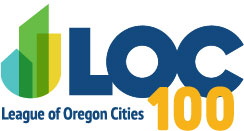Contact
Jim McCauley, Legislative Director
jmccauley@orcities.org
Local Examples
Homeless Leadership Coalition (Central OR COC) - PIT count presentation
Lane County Shelter Feasibility Study & Homeless Services System Analysis
Share Your City's Resources
Does your city have example homeless resources to share with other cities? Email us and we'll add them to the list!
Email usHomelessness Data
Documenting the number, characteristics, and needs of people experiencing homelessness in Oregon communities, as well as the number of people receiving services and the capacity of these services, is essential to identifying the proper strategies to tackle the problem. It’s very difficult to manage what you can’t measure. At the same time, traditional methodologies for measuring homelessness often undercount the true number of people experiencing homelessness and housing stability and have historically undercounted people of color and other marginalized populations.
While current data sources provide a baseline for understanding homelessness in your community, it's important to supplement that data with other sources of information. Strong partnerships with local providers, culturally specific organizations, school districts, and importantly - residents with lived experience of homelessness - will provide a fuller picture.
START HERE - Walkthrough of Using Data
OHCS published County Housing Data Profiles in 2017, a good place to start when looking at the types of data available on housing and the available sources of data. Updated County Housing Profiles are expected to be published in early 2022.
Continuums of Care
The Federal Housing and Urban Development (HUD) Agency originated the Continuum of Care (CoC) program. CoCs are the regional or local planning body that coordinates housing and services funding for homeless families and individuals. CoCs collect and report data about homelessness that are used in planning services and securing resources. CoCs lead the annual Point In Time counts required by HUD.
HUD publishes funding awards, recent reports and jurisdiction maps and websites for each of Oregon’s 8 CoCs here.
Links to Data and Dashboards
Oregon Housing and Community Services (OHCS)
Oregon Department of Education (ODE)

Research and Data Justice


